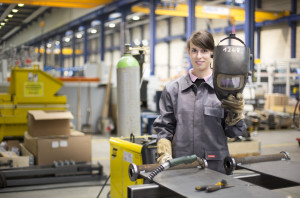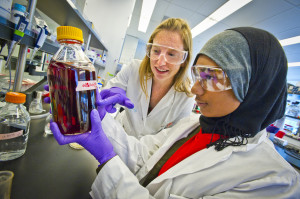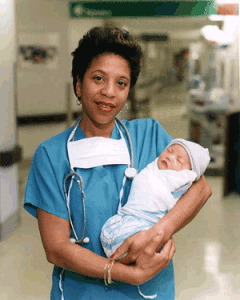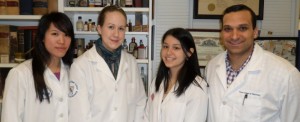
By Elizabeth McGuire
In the fourth installment of our Growing Divide series, this month’s Engage Breakfast covered the topic of equality in wages and skills. Panelists included Greg Casar, District 4 Council Member, City of Austin; Steve Jackobs, Executive Director, Capital IDEA; and Brian Kelsey, Principle and Founder, Civic Analytics. KXAN news anchor Robert Hadlock moderated the discussion, and Chris Sadeghi, also of KXAN, fielded questions from the audience.
Highlights from the morning:
Can you paint a picture of Austin’s economy and the divides that are most prevalent now?
 Kelsey explained that there are two main dimensions to understanding the reality of the labor market today: 1.) The gap between the well-educated and those without a complete post-secondary degree; and 2.) How that inequality translates to inequality along racial and ethnicity lines.
Kelsey explained that there are two main dimensions to understanding the reality of the labor market today: 1.) The gap between the well-educated and those without a complete post-secondary degree; and 2.) How that inequality translates to inequality along racial and ethnicity lines.
Putting some numbers to it: Average annual wage of Austinites with a Bachelor’s degree is $94,000. For those with a completed high school diploma it’s $47,000. On one end of the spectrum, those best-educated in the region are Asians, who make approximately $74,000 a year. On the other end of the spectrum are African-American Austinites, who average $39,000 a year.
“You can see the gap between those who are fully prepared to participate in Austin’s growing economy and those who aren’t,” said Kelsey, “and how that translates into other kinds of divides that we’re seeing here.”
 How will this impact City Council work?
How will this impact City Council work?
There’s clearly an economic divide across our city, said Casar. District, 4 has a median family income in the low $30,000 range. It is the second poorest district in Austin, but it also the district with the most families and the most children. District 4 is composed of almost 20 percent of children under the age of 12. Whereas in the downtown area, District 9, it’s closer to 4 or 5 percent.
We are the future of the city in many ways,” said Casar. “We need to figure out how we prepare and empower folks in districts like my own, and get working class and middle class people and young people across the city to participate in the future economy rather than be just substituted by newcomers.”
Jakobs shared his perspective, saying, “There are 3 things that will diminish both the economic and ethnic gap: education, education, education.”
He emphasized the importance of getting adults through the community colleges and into fields like nursing and technology. Those are “growth fields” and require a completed degree.
“We’re fortunate to be in a city and community that highly values education,” said Jakobs. “We invest in education. Even as folks in the capitol may be cutting back, voters in Austin chose to invest more in their school system and their community college. And we’re going to need to do more of that. That’s the sobering news. The good news is that it pays off.”
 What are some causes of the income gaps we’re seeing?
What are some causes of the income gaps we’re seeing?
The inequality has always been with us, explained Kelsey. What has changed is the Austin economy.
“We had a much more equal labor market in 1996,” said Kelsey. “To put some numbers to that: back in 1996, the salary difference between having a Bachelor’s degree and a high school diploma was $22,000 (adjusted for inflation). Fast forward to today and that gap has more than doubled at $46,000.”
As Austin has developed into a leading technology center in the country, the city has seen a return on education, which has helped accelerate that gap. In the last 10 years, wages haven’t grown tremendously for many people up and down the spectrum, but the gap has persisted. We haven’t been able to close the gap.
What are some of the strategies currently in action to address this issue at the city level?
“With a global and changing economy, we are struggling with how to do that on a local level,” said Casar, “This is especially hard when we have a federal government that not only doesn’t pass very much but doesn’t vote very much on new bills, and a state government that only meets once every couple years.”
Casar believes some of the best things we can do are to address peoples’ everyday costs of living, including escalating housing costs and the cost and time for transportation.
“It was pretty loud and clear in this last election that selling the farm to bring a racetrack to Austin was not the kind of economic development that Austinites want to see.” They want to, as Jim Hightower was always fond of saying, not to look at the Dow Jones index, but the Doug Jones. How are everyday people doing? How are we participating and working hard as a government to make sure that everyday people are making it?”
 How can businesses help us get there?
How can businesses help us get there?
Jakobs emphasized that it needs to be a win-win for businesses. There’s really no such thing as an entry-level job. If you apply for a entry-level job, the first thing they ask is How many years of experience do you have?
The solution is: paid internships. And not just one or two per university, but dozens for the community college. It’s a win-win for businesses and students.
The new UT Medical School will be a once in a generation opportunity to bring jobs and people together, said Kelsey. “It will be a shame if we let the opportunity go by without being a little more intentional and trying to train people for the kinds of jobs that are going to be offered in that brand new medical school.”
Casar cited the former Green Treatment Plant development on downtown’s 2nd Street as a perfect example of effective city involvement. The city owned the land, sold the land and negotiated on behalf of the public. They partnered with a development firm that would include brand-new affordable housing units. By consulting with a local workforce organization, they were able to hire thousands local residents, some of them specifically from high-poverty zip codes.
“This is the kind of model we should be looking at when we talk about partnering government with economic development to bridge this gap with our local workforce,” said Casar.
How can public and private entities support students and families?
Jakobs believes we have to more than simply provide education, especially for a working parent who is going to ACC full-time. Childcare and transportation costs are frequent obstacles for student-parents.
Kelsey added that the government can be more creative in its policies…by adding housing and transportation subsidies and by helping to partner businesses with nonprofits that support the workforce.
He also thinks the community needs to do a better job talking about career in technology education. “For some reason, a lot of people when they hear ‘career in tech education’ think of shop class,” Kelsey said. “And the other part of that is we get into an either/or dynamic. People feel like making room for it might detract from the focus on ‘straight to 4-year university’ and that’s a shame. Having exposure to different kinds of disciplines is only going to help make informed decisions.”
Is Austin lacking in mid-level jobs?
 Kelsey unequivocally said no. “I’m not sure where this narrative started. We are creating jobs up and down the spectrum. Austin is one of the leaders in middle wage job creation. The question is: Is middle wage enough anymore in Austin? Middle wage used to be defined at $22-$24/hour, which won’t get you very far. The better question is: Are we creating middle wage jobs for Austin? And that’s a different matter.”
Kelsey unequivocally said no. “I’m not sure where this narrative started. We are creating jobs up and down the spectrum. Austin is one of the leaders in middle wage job creation. The question is: Is middle wage enough anymore in Austin? Middle wage used to be defined at $22-$24/hour, which won’t get you very far. The better question is: Are we creating middle wage jobs for Austin? And that’s a different matter.”
Another important point, according to Casar, is whether we are creating middle-wage jobs that are attainable and appealing to young Austinites coming out of high school. “We need to make sure that the manufacturing jobs that we bring here are accessible by the community and are dignified jobs that folks are proud taking and would have a ladder upward.”
Steve Jakobs: Get ready for 2016. This past November, ACC came to use with three propositions and we passed two. The third one missed by 6,000 votes and would have funded the soft infrastructure that ACC needs…ACC may be coming back in 2016. Please consider that.
Brian Kelsey: Go to your employer and ask them what they’re doing in this arena. Do we offer internships? What kind of work-study programs do we have? How can we get more involved? Then go to the school district and ask, What are we doing on careers in technical education? What’s offered? What programs? Are we offering enough? What role can CTE play in broadening the education experience before people move on from high school?
Greg Casar: Know what your local elected officials are doing and hold us accountable for the values that you have. Fifty percent of the people who are building our buildings will admit to a UT researcher that they are undocumented. Whatever we can do at the state and local level toward immigration reform is so critical for closing the economic gap.
You can listen to today’s breakfast here:


